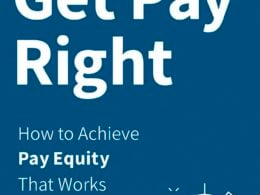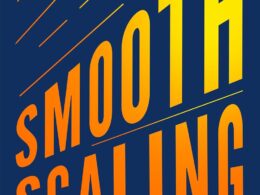In his newest book, “The Practice: Shipping Creative Work,” author and entrepreneur Seth Godin provides the roadmap for all creative people seeking to implement change in the world through their work.
“The Practice” is a little book packed with lots of wisdom. Based on The Akimbo Workshops created by Seth and his team, readers now have a compass on how to “ship” creative work, create change by trusting themselves and their voice, and work without waiting for flow.
As Godin says on his blog, “Our best work happens when we contribute something new, something generous, something that makes an improvement. And making a contribution isn’t possible until we ship the work.”
“The Practice” serves as an essential guidebook for all those who consider themselves artists, teachers and leaders.
In the book, Seth teaches readers how to:
- Find their passion
- Become creative, especially when it’s frightening to do so
- Trust themselves and their voice
- Model being positive in their practice
- Determine who and what they’re creating this work for
StartupNation exclusive discounts and savings on Dell products and accessories: Learn more here
The following is excerpted from “The Practice: Shipping Creative Work” by Seth Godin, published by Portfolio, an imprint of the Penguin Publishing Group, a division of Penguin Random House, LLC. Copyright © 2020 by Do You Zoom Inc.
Shipping your work, because it doesn’t count if you don’t share it.
Creative, because you’re not a cog in the system. You’re a creator, a problem solver, a generous leader who is making things better by producing a new way forward.
Work, because it’s not a hobby. You might not get paid for it, not today, but you approach it as a professional.
Lost in all the noise around us is the proven truth about creativity: it’s the result of desire—the desire to find a new truth, solve an old problem, or serve someone else. Creativity is a choice, it’s not a bolt of lightning from somewhere else.
There’s a practice available to each of us—the practice of embracing the process of creation in service of better. The practice is not the means to the output, the practice is the output, because the practice is all we can control.
The practice demands that we approach our process with commitment. It acknowledges that creativity is not an event, it’s simply what we do, whether or not we’re in the mood.
Finding your passion
One question comes up in my podcast the most often: where do I find my passion? And the corollary: if I’m not passionate about my work, what should I do?
Once you decide to trust your self, you will have found your passion. You’re not born with it, and you don’t have just one passion. It’s not domain-specific: it’s a choice.
Our passion is simply the work we’ve trusted ourselves to do.
This is worth deconstructing, because the strategy of “seeking your calling” gives you a marvelous place to hide.
After all, who wants to do difficult work that doesn’t fulfill us? Who wants to commit to a journey before we know it’s what we were meant to do?
The trap is this: only after we do the difficult work does it become our calling. Only after we trust the process does it become our passion.
“Do what you love” is for amateurs.
“Love what you do” is the mantra for professionals.
Related: Seth Godin Talks the Importance of Seeking the Smallest Viable Market
I feel like an imposter
At least when I’m doing my best work.
The imposter syndrome had been around long before the term was coined in 1978 by Pauline Clance and Suzanne Imes. It’s that noise in our heads that reminds us we have no business raising our hand, jumping in the water or standing on stage.
And I feel like an imposter often.
That’s because my best work involves doing things I’ve never done before.
Recent research estimates that 40 percent of the workforce has a job that requires innovation, human interaction and decision making. And for each of these people, every day exposes them to the feeling of being a fraud.
Of course you’re not sure it’s going to work. How could you be?
The person you’re serving might take offense, or walk away or simply might not speak the same language.
Of course there’s no manual, no proven best practices, no established rulebook. The very nature of innovation is to act as if—to act as if you’re on to something, as if it’s going to work, as if you have a right to be here. Along the way, you can discover what doesn’t work on your way to finding out what does.
Sign Up: Receive the StartupNation newsletter!
Start where you are
Identity fuels action, and action creates habits, and habits are part of a practice, and a practice is the single best way to get to where you seek to go.
Before you are a “bestselling author,” you’re an author, and authors write. Before you are an “acclaimed entrepreneur,” you’re simply someone who is building something.
“I am _______ but they just don’t realize it yet” is totally different from “I’m not _______ because they didn’t tell me I was.”
The only choice we have is to begin. And the only place to begin is where we are.
Simply begin.
“The Practice: Shipping Creative Work” is available now wherever books are sold and can be purchased via StartupNation.com.
Feature image courtesy of Darius Bashar and Archangel






